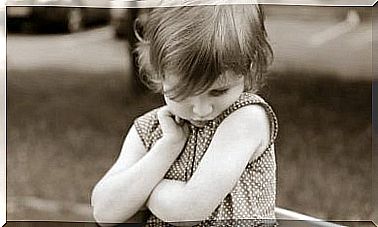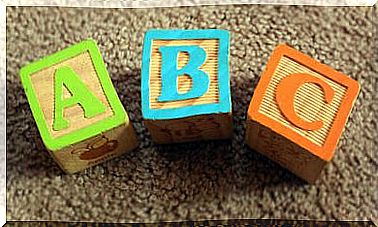Is It Normal For My Baby Not To Cry? Reasons And Advice

If your baby doesn’t cry, this can be very stressful as you won’t easily tell if he’s hungry, cold, or needs something else.
You may be wondering if your child is sick, has a hearing impairment, or has a communication problem. You might also be wondering, “Is it normal for my baby not to cry ?”
Crying is your baby’s main means of communication. However, it may not use it yet. Then learn more about this topic.
Why didn’t my baby cry after it was born?
You may think that all babies cry automatically after birth, or at the latest when they are stimulated by the doctor. However, this is not entirely true.
Babies born naturally experience a lot of stress. This type of birth creates trauma, which then automatically leads to crying.
This activates his airways. Yet many babies are born without crying. They are usually more sleepy and calmer than other children.
When this happens, the doctor or midwife will encourage the child to cry so that their airways, which are still full of amniotic fluid, can empty.
Babies born through a caesarean section are also more likely to yawn or cough than to cry.
If your baby isn’t crying, it could be a sign of a health problem. You should therefore have your child examined in order to rule out any diseases.
In these cases, the doctor will perform what is known as the Apgar test for newborns. Among other things, this is used to assess five specific factors:
- Muscle tone
- Reflexes
- Skin color
- Heart rate
- breathing
The medical professionals can then use the results to determine whether they need to give the baby oxygen.

Possible reasons your baby isn’t crying
Is it normal for a baby to never cry? Don’t worry, the most important thing is that all of his needs are met. Apart from that, every newborn is different.
They may feel hungry or cold without crying to tell them so. If your doctor has already told you everything is fine, it’s because your baby isn’t ready.
You then have to learn to decipher his needs through his movements and gestures. Just because your child isn’t crying doesn’t mean there are problems.
So you should keep a record of his needs, such as when he eats, sleeps, and the last time you changed the diaper.
It is very important that you, as a mother, learn to take care of all of these things. You need to interpret how your baby is communicating and act accordingly.
How do you identify a hungry baby?
Crying is a baby’s last resort. It is his violent way of showing that he is hungry. To prevent your baby from going without food for too long, watch out for these signs:
- The baby turns his head to find the mother’s breast. Most newborns instinctively seek out the mother’s nipple. By observing this behavior, you will understand that your child is hungry.
- If you notice that your child is shaking a lot or moving a lot, it could be a sign that something is wrong. They don’t have to be hungry, but you may need to change their diapers.
- You can also tell that your child is hungry when they suck their tongue. It sounds like it’s sucking on your chest or a bottle. This is a sign to breastfeed.

Signs that your child wants to sleep
If your baby looks tense, lies with his fists closed, and often rubs his eyes, this is a sign that he is tired and wants to sleep.
It also yawns more often and can barely keep its eyes open. These are all signs of napping.
How do you know if you need to change your diaper?
The first sign will be the smell. If it’s been a while since you last changed your diaper, your baby may look uncomfortable and restless.
When it sleeps, it suddenly wakes up. You will see the tension and anger on his face.
If your baby is still not crying to express his or her needs, you must watch all of these signs. If you have any questions as to whether his behavior is still normal, you should consult your pediatrician.









